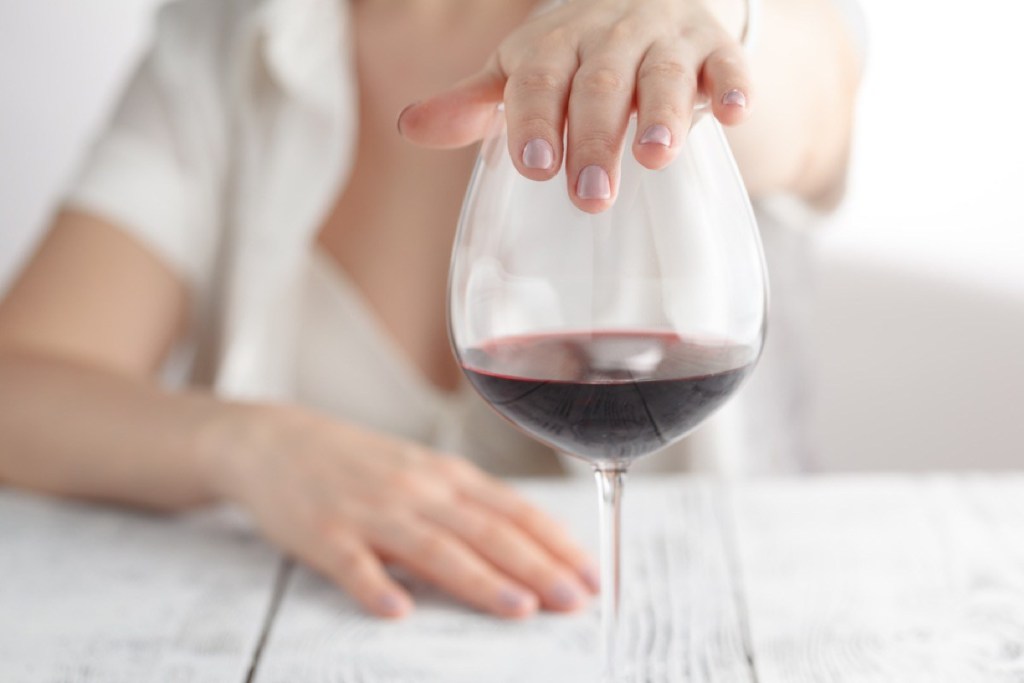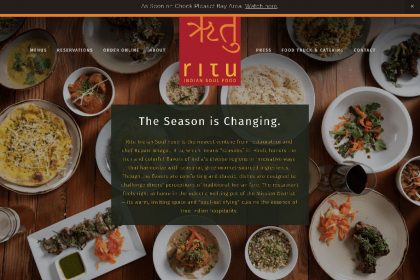I tested my relationship with alcohol for seven days, learning lessons that’ll last me a lifetime.
AUGUST 26, 2019
It was a typical summer Sunday cookout: children chasing one another through the backyard, music thumping through a Bluetooth speaker, burgers smoking on the grill, and bottles and bottles of rosé, red blends, and crisp whites. It was also the last night I’d enjoy alcohol for a solid, self-imposed week.
To say Americans have a complicated relationship with alcohol is an understatement. We’re hyper-aware of the toll of its abuse, but that’s mixed with research that shows that moderate alcohol consumption can be good for you and topped with a generous splash of “Wine Mommy” culture. While Al-Anon and AA meetings are ubiquitous and applauded, boozy brunches and happy hour concoctions drown our Instagram feeds. It’s no wonder that Dry January and Sober October now pepper the calendar, mandatory abstentions from a year-round habit that threatens our collective waistlines, bank accounts, and livers.
In my own life, alcohol similarly walks a fine line between pox and grace. Both sides of my family tree are blighted by alcoholism, a bequeathed legacy of lost jobs, busted marriages, legal troubles, and early deaths. For me, the tendency to overuse is hereditary, passed down right along with my sharp nose and curly hair.
Conversely, alcohol has long been my personal hero, lubricating my ease at parties and rooftop bars, felling my crippling social anxiety in a single shot. Even at home, an evening glass of wine or cocktail is standard, softening the edge of a long, stressful day.
My drinking isn’t something I often take a hard look at; after all, my consumption falls within the accepted definition of “moderate drinking” and I’ve never experienced the worst consequences of alcohol use, such as a DUI, or the loss of a job or relationship. But I was curious about the less obvious effects of alcohol on my life: its impact on my mood, my sleep, my family. My middle-school-aged daughters are learning about alcohol abuse in health class, and I wondered if I was setting the appropriate example of a healthy adult relationship with the stuff.
There was only one way to be sure, and that way was cold turkey.
I announced my week of teetotaling only to my husband Michael, a wine lover and marathoner, who easily tempers his drinking based on his training schedule. “Are you sure this is the best week for this? What about the cookout?”
Oh, I went to said cookout and I drank wine like I’d never taste it again. And then I tried on sobriety for one week, full stop.

Shutterstock
I didn’t have a specific plan for my new “zero alcohol” diet, which left me dreading Day 1. Unlike cleanses I’d undertaken in the past, the house had not been deliberately swept of the forbidden fruit in question; in the freezer sat a delicious, half-filled bottle of vodka, quietly taunting me with its ice-cold availability. Instead, on Night 1, I poured myself a tall glass of filtered water and took to my bed with my cat and a thick book.
By morning, I already felt curiously invigorated, and newly committed to seeing the sober week through.
In the days that followed, I rejected any enticements to indulge, canceling previously-planned evenings out and turning down invitations for drinks. Instead, I fully focused on how good I was feeling, suddenly clearer and more energetic. I was sleeping soundly, uninterrupted for eight- to nine-hour stretches. Every morning, I felt refreshed, my skin plump and dewy.
Despite the miraculous physical side effects, my social life exponentially tanked. In addition to declining the dinners and happy hours with friends, date nights with my husband flat-lined. My complexion may have been worth parading around town, but dinner at our favorite steak joint sounded bland without a bourbon. Not drinking, as it turned out, made me want to isolate myself.
Sober Me also required a solid routine. Instead of curling up each night with Netflix and a cocktail, I devoted my evenings to self care: face cleansing, home mani-pedis, soldiering through a backlog of facial masks (so many masks, so much sudden free time!). I chatted late into the night with my daughters, absorbing their concerns about heading back to school after the long, languid summer break. I read thick and complicated literary novels and chewed melatonin gummies like exquisite late-night sweets.
But Day 5 finally threw off my anti-socializing strategy: Our friends were leaving the state and a Friday night going-away party would be our last chance to spend time with them. Every outing with this friend group centered around alcohol. I truly didn’t know if I could both avoid drinking and dodge intrusive questions about why I was doing so.
Sure enough, the red wine flowed and cocktails were stirred. But by the time shots were being poured, not a soul had so much as remarked upon my prim glass of sparkling water. And my social anxiety, something I’d been so keen to cover up with a cocktail, proved containable. Sober Me was more reserved, but we were among friends, none of whom would judge me for being less gregarious than usual. My husband said he was impressed by my commitment to following the spirits-free spirit of the week; and frankly, so was I.

Shutterstock
It was the evening of Day 7, however, that I found Michael languorously catching up on his TV viewing, a glass of pinot noir swirling between his fingers. Just hours shy of achieving my goal, I was immediately seized with childish envy.
“Sobriety is boring!” I announced. My husband laughed. “Yes, it definitely is,” he said, tipping his glass to me before taking a lusty swallow.
As payback, I made him take me to brunch the next day for a Bloody Mary. Standing before me on the table, piled high with fried bacon and a gardenload of pickled vegetables, it was easily the most delicious brunch cocktail that had ever passed my lips. While I’m no day drinker, it felt like an appropriate rite, a nod to my week of sobriety and the control I discovered I can readily place on my consumption.
So what did I learn in my seven short alcohol-free days? That skipping the sauce meant I had more energy. I slept deeper, dreamed more vividly, and woke less often. I dropped a few pounds. I dealt with social anxiety by paying attention to it instead of sedating it. And I spent more time with my teen daughters, listening and connecting, not battling. (I later asked them if they thought I was any different over the course of the week, and they both insisted I wasn’t—a reassuring sign that my typical consumption is both unremarkable to them and non-impactful on our relationship.)
In truth, my sober week was boring. For me, alcohol warms and enlivens; it makes food taste better and makes even banal experiences shimmer with possibility. But I also learned that unlike my tragic family forebears, I can make the choice to imbibe or abstain, to opt for “boring” over the devastation of addiction every time.
Ever since my little experiment, I’ve been drinking very little. I’ve been more mindful of alcohol’s effect on my body and mood, and more conscious that moderation isn’t a restriction but a definitively healthy step toward balance. And I’ll happily toast to that.
Published in BestLife




